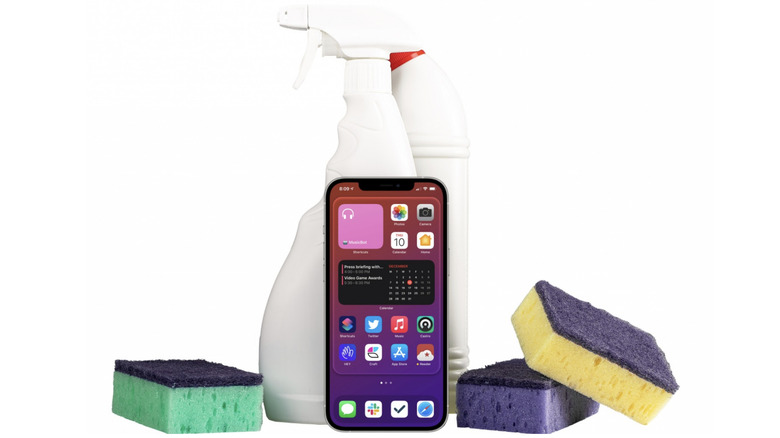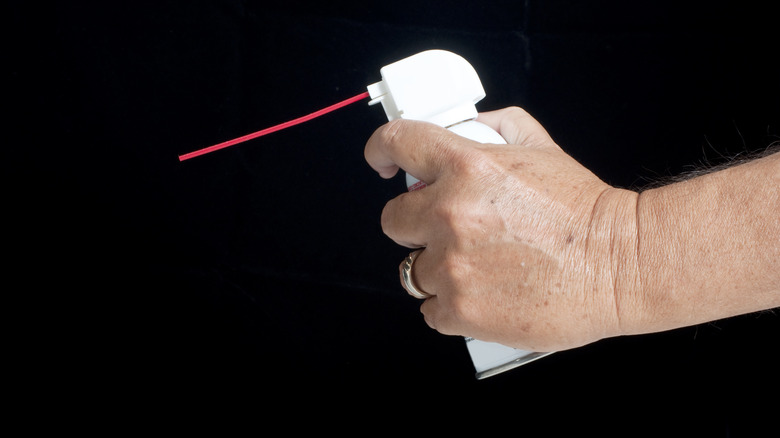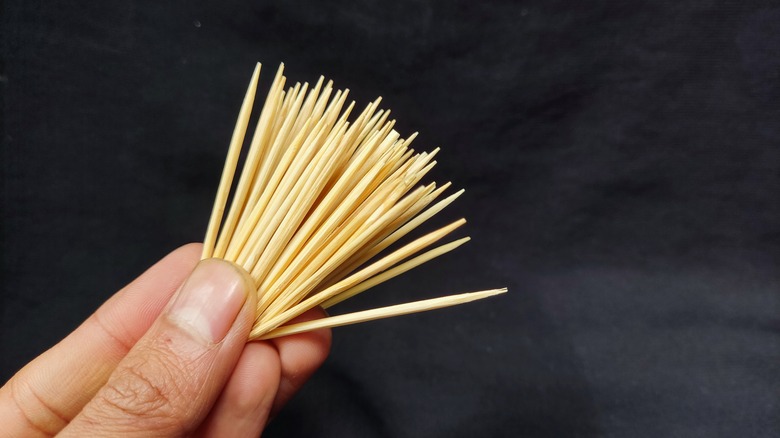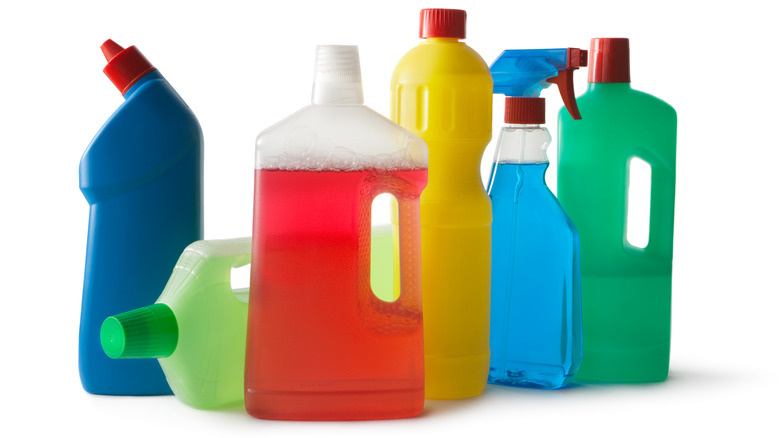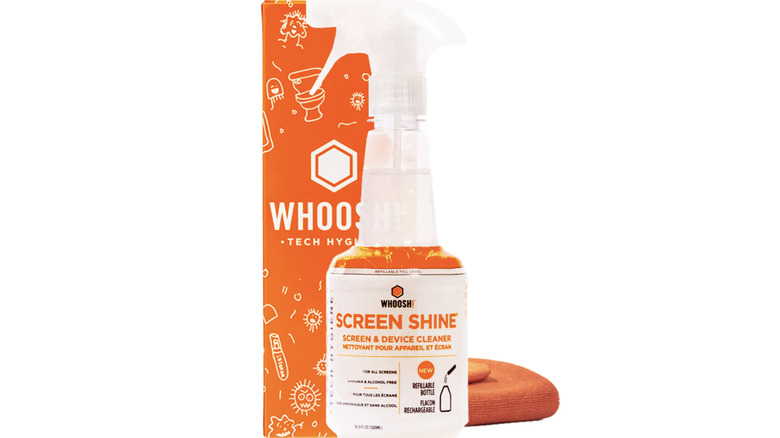You'll Want To Avoid Using These Products When Cleaning Your iPhone
We may receive a commission on purchases made from links.
There's nothing worse than a visibly dirty iPhone. You can see the dust and grime gathering in the nooks and crannies, and it completely spoils the beautiful, clean design everyone loves. But when you do a quick internet search to discover how best to clean your trusty pocket computer, you'll be met with nothing but contradictory information about what does the job, what is dangerous, and what will straight-up kill your phone.
At this point, you decide to go straight to the source — Apple — only to find that its advice is limited to microfiber cloths and alcohol wipes. Is that really enough to get rid of all the dirt and grime? And what about the debris that builds up in the charging port, speakers, and around the edges of buttons? Unfortunately, there isn't an official way to take care of those more delicate jobs, but there are a few regularly recommended methods you should avoid.
Compressed air for clearing debris from ports
One thing Apple warns against on its "Cleaning your iPhone" page is compressed air — but it doesn't say why. It turns out that cleaning with compressed air is a bit of a complex topic. In some areas of Canada and the United States, it's illegal to use highly compressed air for cleaning purposes in work settings, and many commercial canned air products don't use air at all but dangerous solvents. When misused, they can even spray out a liquid that could prove disastrous for your electronics.
For iPhones in particular, it seems the danger is damaging the phone's inside. If you spray compressed air to clean your iPhone speakers and other openings, there's a chance you could blow out the microphone. According to this user on Reddit, after using compressed air, all their microphone could pick up was static.
People consider compressed air suitable for cleaning electronics because it doesn't use water. However, the high-pressure air can still move or damage delicate parts or turn debris into troublesome shrapnel that can cause harm. It's best to listen to Apple on this one and avoid using canned air on your iPhone.
Brushes, toothpicks, and other spiky things
If you decide to avoid compressed air, then the next thing you might think of is using a toothpick, needle, brush, or even the iPhone sim tool to scrape out debris and clean your iPhone. Apple doesn't suggest doing this, but it doesn't mention anything about not doing it, either.
According to some former Apple Store employees and customers on Reddit who had their charging ports cleaned in-store, it's common practice for Geniuses to use a sim tool, ESD-safe brushes, or tiny screwdrivers to clean the ports. The difference between the pros doing it and consumers doing it at home, however, is that the pros have been taught how to do this without damaging the phone. If you scrape the wrong part — i.e., the gold contacts inside the charging port — you can easily mess things up and damage the charging function.
The charging port is relatively small, so the procedure can be pretty delicate, which could lead to a lot of failed attempts and unhappy customers if Apple officially recommended this method.
Any cleaning product with bleach
Apple directly instructs users not to use any bleach cleaning products on their iPhones. Bleach is a strong and dangerous chemical, so it's easy to imagine why it might not be the best idea. Apple asks customers to steer clear of most cleaning products because they can potentially damage the "fingerprint-resistant oleophobic coating."
Just as the name suggests, this coating helps stop fingerprints and oils from sticking to the screen, making it possible to remove them with just a simple dry or damp microfiber cloth. If you damage this coating, you'll find that your screen will get dirty more quickly and become harder to clean.
If you want to give your phone a deep clean, the strongest cleaners Apple recommends are 70% isopropyl alcohol wipes, 75% ethyl alcohol wipes, or disinfectant wipes. Just make sure not to let any moisture into the openings at the bottom of your phone.
What about Whoosh cleaning solution?
One cleaning product you may have heard of in connection to Apple products is Whoosh cleaning solution. Whoosh products are free from alcohol, ammonia, dyes, and fragrances and are specifically designed for use on smartphones, laptops, and other types of tech. The interesting part is that Whoosh links to a TikTok post on its website that claims Whoosh is "the only approved screen cleaner for ALL Apple Stores worldwide."
According to the post, bottles of Whoosh are in every Apple Store, and it's the secret cleaning tool Apple uses to keep its display products sparkling clean. Of course, there's no mention of the product on Apple's cleaning recommendations, and they don't sell it in-store or online either. This may seem a little odd, but at the same time — if the claim was false, Apple would surely force Whoosh to take the link off its site.
The thing to remember about cleaning recommendations from Apple employees' point of view is that whatever they suggest can be held against them if people follow the suggestion and end up with a damaged phone. The easiest way out is only to suggest the safest and most difficult-to-mess-up cleaning methods — i.e., the damp microfiber cloth. So, while there may be other options out there, they won't get the all-clear from Apple, and if you do use them and damage your phone, you won't be getting any help since you'll probably void your warranty.
